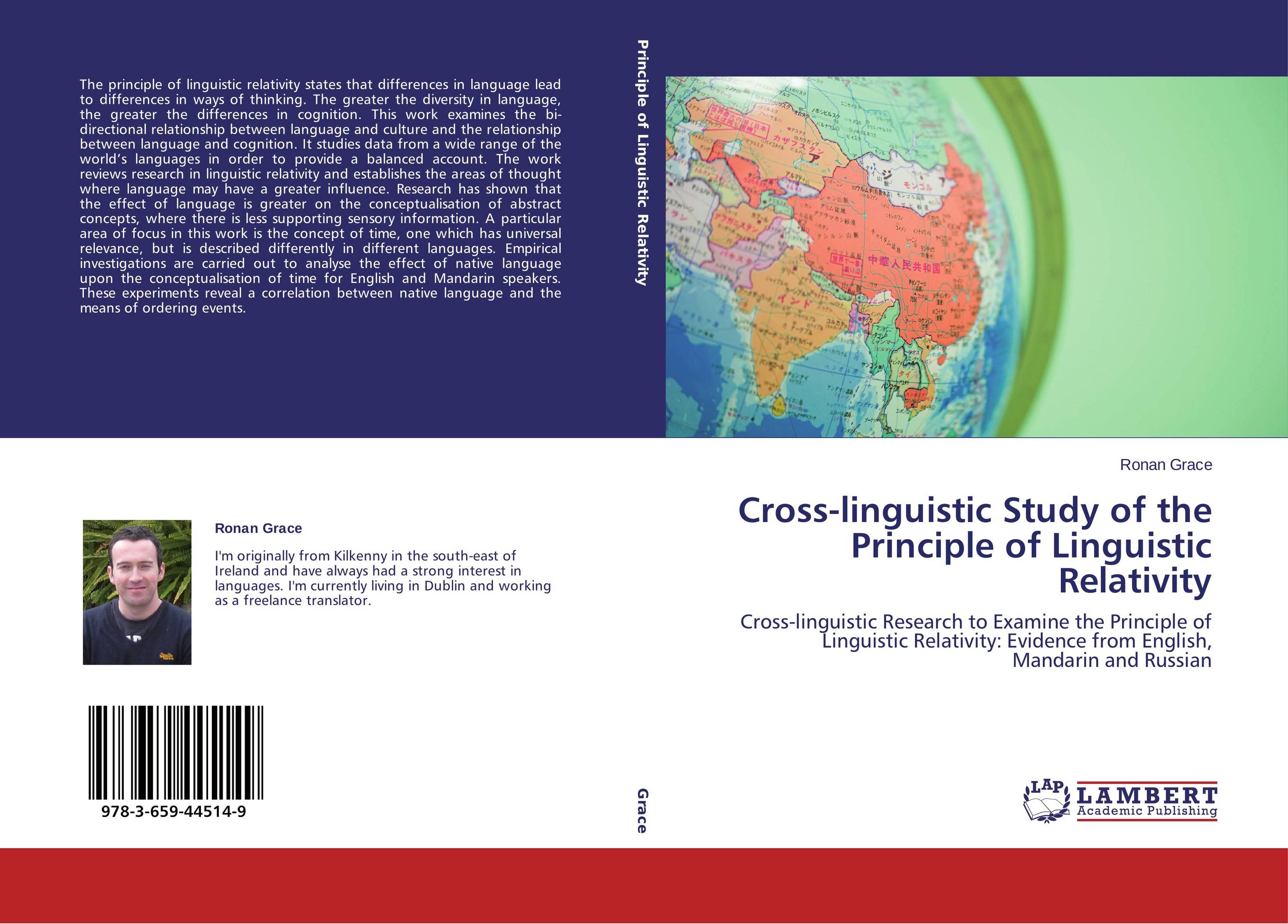| Поиск по каталогу |
|
(строгое соответствие)
|
- Профессиональная
- Научно-популярная
- Художественная
- Публицистика
- Детская
- Искусство
- Хобби, семья, дом
- Спорт
- Путеводители
- Блокноты, тетради, открытки
Cross-linguistic Study of the Principle of Linguistic Relativity. Cross-linguistic Research to Examine the Principle of Linguistic Relativity: Evidence from English, Mandarin and Russian

В наличии
| Местонахождение: Алматы | Состояние экземпляра: новый |

Бумажная
версия
версия
Автор: Ronan Grace
ISBN: 9783659445149
Год издания: 2013
Формат книги: 60×90/16 (145×215 мм)
Количество страниц: 176
Издательство: LAP LAMBERT Academic Publishing
Цена: 42817 тг
Положить в корзину
Позиции в рубрикаторе
Отрасли знаний:Код товара: 126887
| Способы доставки в город Алматы * комплектация (срок до отгрузки) не более 2 рабочих дней |
| Самовывоз из города Алматы (пункты самовывоза партнёра CDEK) |
| Курьерская доставка CDEK из города Москва |
| Доставка Почтой России из города Москва |
Аннотация: The principle of linguistic relativity states that differences in language lead to differences in ways of thinking. The greater the diversity in language, the greater the differences in cognition. This work examines the bi-directional relationship between language and culture and the relationship between language and cognition. It studies data from a wide range of the world’s languages in order to provide a balanced account. The work reviews research in linguistic relativity and establishes the areas of thought where language may have a greater influence. Research has shown that the effect of language is greater on the conceptualisation of abstract concepts, where there is less supporting sensory information. A particular area of focus in this work is the concept of time, one which has universal relevance, but is described differently in different languages. Empirical investigations are carried out to analyse the effect of native language upon the conceptualisation of time for English and Mandarin speakers. These experiments reveal a correlation between native language and the means of ordering events.
Ключевые слова: Language, linguistics, Computational Linguistics, Chinese, Relativity, Languages, Mandarin, negation, conceptualisation of time, linguistic relativity, Whorf, Sapir



